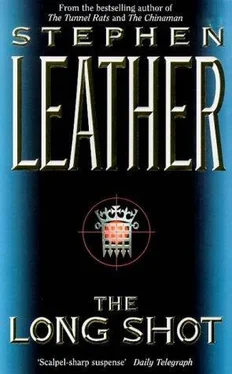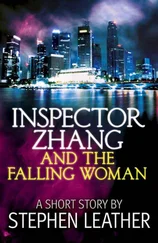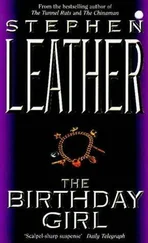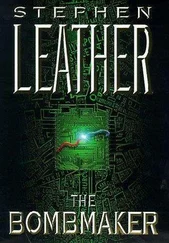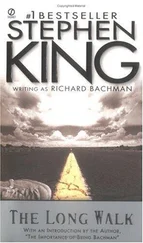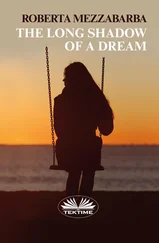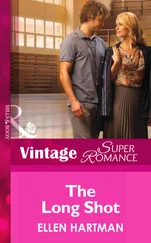Stephen Leather - The Long shot
Здесь есть возможность читать онлайн «Stephen Leather - The Long shot» весь текст электронной книги совершенно бесплатно (целиком полную версию без сокращений). В некоторых случаях можно слушать аудио, скачать через торрент в формате fb2 и присутствует краткое содержание. Жанр: Триллер, на английском языке. Описание произведения, (предисловие) а так же отзывы посетителей доступны на портале библиотеки ЛибКат.
- Название:The Long shot
- Автор:
- Жанр:
- Год:неизвестен
- ISBN:нет данных
- Рейтинг книги:5 / 5. Голосов: 1
-
Избранное:Добавить в избранное
- Отзывы:
-
Ваша оценка:
- 100
- 1
- 2
- 3
- 4
- 5
The Long shot: краткое содержание, описание и аннотация
Предлагаем к чтению аннотацию, описание, краткое содержание или предисловие (зависит от того, что написал сам автор книги «The Long shot»). Если вы не нашли необходимую информацию о книге — напишите в комментариях, мы постараемся отыскать её.
The Long shot — читать онлайн бесплатно полную книгу (весь текст) целиком
Ниже представлен текст книги, разбитый по страницам. Система сохранения места последней прочитанной страницы, позволяет с удобством читать онлайн бесплатно книгу «The Long shot», без необходимости каждый раз заново искать на чём Вы остановились. Поставьте закладку, и сможете в любой момент перейти на страницу, на которой закончили чтение.
Интервал:
Закладка:
His wife sat behind another counter at the far side of the shop reading a Korean newspaper. She glanced up at the two teenagers as they walked into the shop and then she returned to her newspaper.
“How can I help you?” asked Mr Oh.
One of the teenagers nodded towards the window. “Yeah, we wanna see the boom box in the window, the one with the CD player.”
“It’s $649,” said Mr Oh.
The teenager thrust his chin forward. “We’ve got money,” he said. Mr Oh went to the window display. “These fucking Koreans, they’ve got a real attitude,” said one of the boys.
“Yeah, you don’t get no respect, that’s for sure,” said the other.
Mr Oh snorted. He wanted to tell them that respect was something that had to be earned, and that it was hard to respect people who did nothing more productive than hang around on street corners, sell drugs and shoot each other. Mr Oh hated East Los Angeles with a vengeance. His shop had been looted during the 1992 riots and he had given serious thought to moving to the East Coast, where race relations weren’t as heated as they were in LA. If his eldest daughter hadn’t been in her second year of law school the family would have probably moved. Eventually he had decided to stay put, to refurbish the shop and restock it, but he had never got over the bitterness and resentment. The people who came to his store had to be tolerated, that was all. He carried the CD player over to them and put it down in front of them. “This latest model, very good,” he said.
“Yeah, right,” said one of the teenagers.
“We’ll take it,” said the other, handing over an American Express card.
Mr Oh took the plastic card over to his cash register and swiped it through his card reader. As he waited for confirmation that the card was good he looked at a special bulletin of names and numbers by the side of the register. His eyes widened when he saw the name Justin Davies. He checked the number on the card and it matched. His palms began to sweat. He pressed the cancel button on the card reader and called his wife over. The teenagers looked across at him.
“There a problem, man?” one asked.
“No, no problem,” said Mr Oh. “Machine slow today, that’s all.” He spoke to his wife rapidly in Korean, asking her to handle the transaction while he phoned the police from the back office. Mrs Oh smiled at the men as she swiped the card a second time.
The Colonel’s private line buzzed and he picked it up, motioning to the bulky sergeant that he could go. He waited for the soldier to close the door behind him before speaking. The man on the end of the line didn’t identify himself, and neither did the Colonel.
“Our friends in the Big Apple have been asking questions about Damien O’Brien,” said the voice.
“Nothing worrying, I hope?” said the Colonel.
“Seems routine,” said the voice. “Surveillance pictures, passport details courtesy of INS, and a set of prints, taken off a Budweiser bottle of all things. General request for information with a copy to the RUC and a request that we cross-check with CRO.”
“It’s good to see them on the ball,” said the Colonel. “When will they get their reply?”
“Thought we’d sit on it for a day or two. Pressure of work, you know.”
“They’ll understand, they’ve had their own cutbacks to deal with.”
“Sign of the times,” said the voice. “Thought you’d appreciate the call, anyway.”
“Absolutely,” said the Colonel. “Hopefully that’ll be the end of their interest.”
“I would hope so,” agreed the voice. “I’ll keep in touch.”
The line went dead and the Colonel replaced his receiver, a tight smile on his face. So far, so good.
The phone on the bedside table rang, startling Cole Howard awake. He grabbed at the receiver but before he could reach it, Lisa answered it on one of the downstairs extensions. Howard squinted at the clock-radio. It was seven-thirty. He rubbed his eyes and groaned. Lisa had a golf game at eight o’clock and as usual she’d slipped silently out of bed without wakening him.
He heard her walk down the wooden-floored hallway and stop at the bottom of the stairs. “Cole!” she called. “It’s Daddy!”
Howard picked up the receiver. “Good morning, Ted,” he said.
“Still in bed?” asked Clayton. Theodore Clayton made it a point of principle to be at his desk before anyone else in his company. He claimed it was because he could get more work done in the early hours, but Howard suspected it was because it gave him the opportunity to go through his employees’ offices.
“Late night,” lied Howard. “What’s up?”
“My computer guys have something they’d like to show you. Seems they’ve made something of a breakthrough using one of their programs.”
Howard sat up and ran a hand through his messed hair. “Great. Where do I go?”
“Come to our labs. I’ll arrange for your clearance, just tell the gate you want to go to the Image Processing and Research Labs, they’ll tell you where to go. Ask for Jody Wyman.”
Howard repeated the name. “This morning?” he asked.
“If you can make it,” said Clayton. “Cole,” he said, his voice almost hesitant. “When you meet Wyman, don’t be put off by the way he looks, okay? You have to make allowances for his appearance and his attitude. He’s a creative type, right?”
“Right,” said Howard, intrigued. An hour later he was walking down a white-walled corridor which seemed to be pulsating from the sound of a Led Zeppelin track being played at full blast. Clipped to his breast pocket was a visitor’s pass which gave him access to the section where Wyman worked and nowhere else. Sensors embedded in each door detected a magnetic coding on the pass and it had been explained to him that all sorts of alarms would ring if he tried to pass through a door without it or if he entered an unauthorised area.
He found a door with a plastic plate with two names on it: Jody Wyman, PhD, and Bill McDowall, PhD. The pulsating beat was coming from behind the door, and Howard knocked hard. The door swung open and the music billowed out, along with the distinctive sweet smell of marijuana. Howard saw two men standing with their backs to him, rocking their heads backwards and forwards and strumming imaginary guitars. Their laboratory was almost a carbon copy of the one Bonnie Kim worked in, though it seemed to have more equipment. Like Bonnie Kim’s it had no windows.
Howard stepped into the laboratory and closed the door. The two men failed to notice him. Their whole bodies were rocking in time with the music. They began a synchronised side-step and then as one they turned round, eyes closed, fingers strumming, mouths open, hair flying. A joint was smouldering in a glass ashtray next to a laser printer. The track came to an end and the two men opened their eyes, looks of rapture on their faces. They appeared to be in their twenties but looked like refugees from the hippy era: sweatshirts, Levis which had faded at the knees, and leather sandals. Both had several days’ growth of beard.
Their eyes widened as they realised they weren’t alone in the lab. One of them began to speak but before he could say anything the next track began and Howard couldn’t hear him. The other man rushed over to a CD player and switched it off. “Sorry,” he mumbled. “We gotta have a Led Zep injection or we can’t get any work done.”
“It’s sort of like brain flossing,” said his colleague. He squinted at Howard. “Er, who are you?”
“Cole Howard,” said Howard. He waited a beat. “Of the FBI.”
The guy who’d switched off the CD player looked guiltily at the ashtray. The other man stepped forward, his hand extended. Howard noticed he was wearing a mood ring. He hadn’t seen one since the Sixties. It was green, but Howard couldn’t remember what that signified. “I’m Wyman,” the man said. “How’s it going?”
Читать дальшеИнтервал:
Закладка:
Похожие книги на «The Long shot»
Представляем Вашему вниманию похожие книги на «The Long shot» списком для выбора. Мы отобрали схожую по названию и смыслу литературу в надежде предоставить читателям больше вариантов отыскать новые, интересные, ещё непрочитанные произведения.
Обсуждение, отзывы о книге «The Long shot» и просто собственные мнения читателей. Оставьте ваши комментарии, напишите, что Вы думаете о произведении, его смысле или главных героях. Укажите что конкретно понравилось, а что нет, и почему Вы так считаете.
